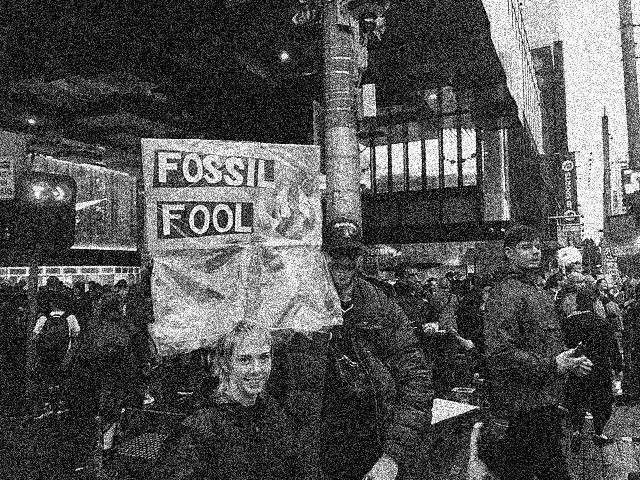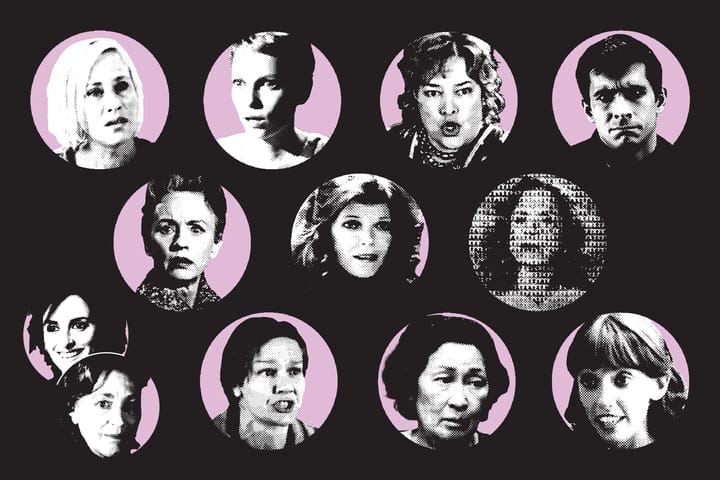What Are We Looking At?
Don’t Look Up is not a good movie. That the Left insists otherwise is not a good sign.

David Sirota is a terrific journalist; his work in The Daily Poster/Jacobin is invaluable. Also, Don’t Look Up, which Sirota co-wrote, is a ham-fisted, borderline unwatchable film. Both of those things can be true.
The only way in which I can make sense of the glowing reviews of the film in left media outlets—here, here, and here—and of the preposterous assertion that critics don’t get what it’s really about (is that possible?) is as tortured attempts to see continuity between Sirota’s journalism and his screenwriting. Unfortunately, I suspect this is professionally-motivated, as I assume most of the writers of the articles linked above know Sirota personally in some capacity or another. Which of course leads to the depressing conclusion that much of the left praise for the film is fluffing up a friend/senior colleague.
This happens in every sphere of media, of course, but it does raise the question as to what precisely distinguishes left media from media as such? What is the purpose of left media? Is it consistent with publicly validating the “art” of people in your friend circle? Is it to validate us over and against the criticisms of them? The question extends also to the film itself, of course: is the point to break into the mainstream in order to do consciousness-raising about planetary disaster? Is the medium of the Hollywood blockbuster really capable of radicalizing anyone?
There’s a lingering worry that motivates this line of questioning: the conceit of the twin Bernie campaigns was that we were creating the institutional infrastructure needed to carry forward a left movement for years to come. After a failed attempt to do so with Our Revolution in 2016 and no attempt to do so in 2020, all of the lists, networks, and energy of the Bernie campaigns has dissipated, leaving behind a group of largely white and middle-class activist-y types who have settled into influential positions in the left-liberal non-profit and media worlds. The worry, in short, is that the Bernie moment was just about creating or maintaining a new professional-managerial class niche.
So when a bunch of confusingly positive reviews come out in left media outlets, you have to wonder if this kind of sycophantic professional-networking is all we have to show for the Bernie work. Endless hours of canvassing, phonebanking, fundraising, all culminating in the epochal event of Nathan Robinson telling us that bad culture is good, actually.
To go back to basics: what distinguishes left media and left culture from mere subculture is that it can, if done well and intentionally and under the right circumstances, support the coherence of a working-class movement. Since dominant culture is fundamentally bourgeois culture, we need, in addition to building working-class institutions capable of politically challenging for power, to intervene in civil society to counter what poses as culture as such. In its quaintest form, this looks like 1199’s Bread and Roses project, mentioned in these pages here.
Especially at a time when the mediating institutions of society have been gutted, leaving us atomized and online, the role of left cultural products takes on an uncomfortable importance. This thought can be, and is, exaggerated, animating endless flame wars on Twitter that pose as political gestures. The mistake here is to think that it’s left culture itself that matters—its purity, its liveliness, its correctness. None of this is that important, and a great deal of left pathology today lies in thinking it is.
The thing that instead makes left culture important is its attachment to the political institutions with which it is symbiotic. Without that external relation, it’s all just subculture—fun for a laugh, but really nothing to get that worked up about. The point is to provide what Hal Draper called a “political center,” a node of attraction to a kind of political thinking that guides listeners or readers to corresponding institutions. As those institutions grow and strengthen, left culture is in turn amplified and refined. There is, in theory, a virtuous circle that pertains between left politics and left culture.
From what I can tell, Don’t Look Up’s political aim is to give the kind of person who is vaguely concerned with looming climate disaster a full-blown anxiety attack, so that they end up wanting to yell “Climate change is real!” in the face of every cynical (but eminently fuckable) morning talk show host. Of course, this is a questionable goal in itself, as an overriding concern with climate change does not necessarily make good politics—see Extinction Rebellion. But the broader miscalculation is to think that the kind of person who is the movie’s target either a) does not already feel anxious in this way, or b) is not masochistic enough to subject themselves willingly to at least feeling anxious for the requisite 4+ hours (or however long the film was). So not only is the end to which this consciousness-raising unclear, it’s also doubtful that this is anything more than confirming already held beliefs.
The suspicious part is that this political miscalculation makes good economic sense: the opportunity to both demonstrate one’s virtue and watch famous people demonstrate theirs is practically irresistible to good liberals. This is one of the confusing things about those who hold up the film as a piece of successful counterpropaganda: its popularity (according to number of views, not ratings) speaks not to the appealing nature of the left’s platform but to the already-existing receptiveness of left-liberals to climate apocalypticism.
But again, it’s the positive reviews of the film that really make you wonder. Don’t Look Up might be a disaster, but at least, one might say, it’s an earnest one. It wears its heart on its sleeve. What the reviews hint at is that it’s really just business all the way down: that the film was made to profit off of people’s anxieties about climate change (or desire to express the right attitude about others’ anxieties about climate change), and that left media is there to prop up that enterprise for understandable, if somewhat gross, professional reasons.
This isn’t an argument against intervening in culture, just another observation that that line between what’s good for “the movement” and what’s good for the individual, professionalized participants in that movement grows ever blurrier.
As this is all rather bleak, maybe it’s worth reflecting on how it could be worse. In his own review of the film, Ross Douthat ends by re-imagining the basic plot. In Douthat’s second cut, the United States goes through with the nuke strike, but it fails because our arsenal hasn’t been properly maintained. (Step 1: Cast doubt on the reliability of the state.) Then the tech bro gives it a shot with the big drill, but it fails because he gets distracted. (Step 2: Be anti-elitist, but confirm that the private sector probably has the solutions.) And finally, China solves the problem but destroys the US while doing so. (Step 3: China!!!)
If there’s anything harder to watch than a bad movie by Adam McKay, it’s publicly fantasizing about making an even worse movie as an audition for Adam McKay.
■
Aurora Borealis ate her own parents and has nothing to show for it but a vivid fantasy life



